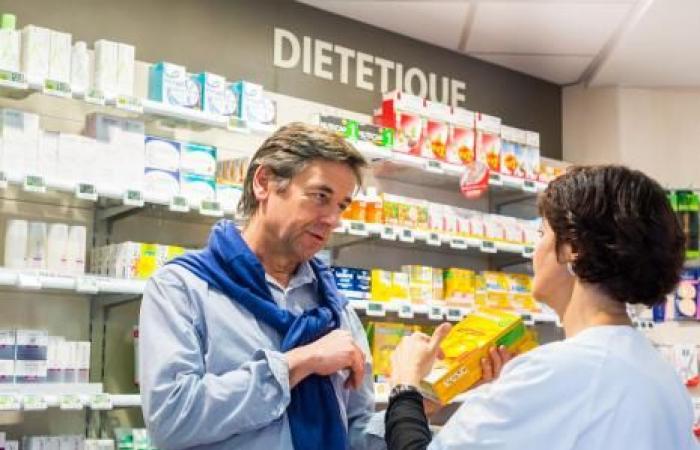The Pharmacist's Daily.- What are the objectives pursued by the loyalty programs set up by pharmacy groups?
Bertrand Cadillon.- The programs aim to encourage customers to stay loyal to a brand rather than turning to the competition. For pharmacies, the goal is obviously to create sufficient appetite among customers so that they prefer to return regularly to the same pharmacy. Loyalty is all the more critical in a competitive market where consumers have many options outside of pharmacies and particularly in large medium-sized stores. However, due to professional regulations and recent case law from the Council of State, pharmacy loyalty programs must be managed by pharmacy groups and limited to parapharmacy products, excluding medicines which may or may not be refunded as well. as medical devices.
How can designing a loyalty program through a group benefit a pharmacy?
Fabienne Le Scornec.- The benefit of a loyalty program lies mainly in increasing the average basket and the frequency of visits. As an illustration, our statistical data shows that groups that have opted for management of their loyalty program see an increase of 26% in the average basket and 20% in the annual visit frequency. Such a program encourages customers to spend more and come back more often, which generates a significant return on investment (ROI) for the pharmacy. Furthermore, these programs also make it possible to collect valuable information on customers' consumption habits, thus facilitating targeted marketing actions.
What are the technical and organizational prerequisites for setting up an effective loyalty program in pharmacies?
Fabienne Le Scornec.- Setting up a loyalty program requires both technical and organizational preparations. On a technical level, it is crucial to integrate pharmacy management software (LGO) so that loyalty cards are recognized and the data transmitted to databases via Web Services. It is imperative that all pharmacies in the same group participate in the loyalty program in a consistent manner, ensuring a uniform experience for the consumer. In addition, the success of the program relies on engaging all customers, including those who are less loyal, to maximize penetration rate and ROI.
However, how can pharmacy groups use the data collected to optimize their loyalty program?
Bertrand Cadillon.- The collection and analysis of customer data is fundamental for a successful loyalty program. The information collected via loyalty cards allows pharmacies to understand purchasing behavior and target their communications more precisely. For example, by sending personalized promotions by mail, email or SMS, pharmacy groups can encourage customers to increase the frequency of their visits and the amount of their purchases. This so-called “data-driven” approach makes it possible to transform the loyalty program into a strategic tool rather than a simple cost center. It goes without saying that the management of customer information must comply with the strict rules of the GDPR (General Data Protection Regulation).
Can pharmacy groups take advantage of loyalty programs to negotiate with laboratories?
Fabienne Le Scornec.- A solid and well-structured customer database allows pharmacy groups to negotiate advantageous commercial transactions with parapharmacy laboratories. Thus these laboratories, wishing to target their offers to potential customers, can offer additional discounts which the pharmacy groups will then pass on to their customers. This makes it possible to share the costs of the generosity of the loyalty program and to strengthen collaboration between the group's pharmacies and laboratories.
But what is the impact on the profitability of a pharmacy?
Bertrand Cadillon.- A pharmacy's profitability can be significantly improved by a well-designed loyalty program. By increasing the average basket and the frequency of visits, the “para” turnover increases, largely offsetting the costs of setting up and managing the program. However, it is essential to carefully monitor and manage the costs associated with discounts and benefits offered to ensure that they do not detract from the sales margin and thus overall profits. This clearly implies clearly identifying each year the evolution of the number of customers and that of the average basket excluding medicines and above all isolating in the accounts the direct and indirect costs of the program.
What are the accounting features associated with loyalty programs in pharmacies?
Bertrand Cadillon.- Pharmacy loyalty programs involve specific accounting features. Customer discounts and benefits must be tracked and accounted for properly to reflect their impact on margins and profits. Dispensers must ensure that loyalty program costs are allocated appropriately in the income statement, taking into account deferred discounts and loyalty vouchers. The annual closing balance sheet must indicate in liabilities what “parapharmacy” customers could be entitled to claim or deduct monetarily during a next purchase.
Does the implementation of a pharmacy loyalty program have limits?
Fabienne Le Scornec.- Despite the many advantages, implementing a pharmacy loyalty program is not without challenges. The main limitation is the regulations which limit the scope of loyalty programs to drugstore products: we are not in the USA! In addition, technical implementation and organizational harmonization within groups require significant coordination and investments. Finally, for the program to be truly effective, it must achieve a sufficient penetration rate, which involves an active and continuous inserting campaign.
Bertrand Cadillon.- According to the typology of pharmacies, the weight of parapharmacy varies but it goes without saying that for many pharmacies it is a profitability issue because the margins are higher and freely set. In a context where the part of the activity linked to the monopoly currently generates less margin, it is useful to ask the right questions and beyond that to equip yourself with the appropriate tools: the loyalty program via a grouping is one of the answers.






